Filter by
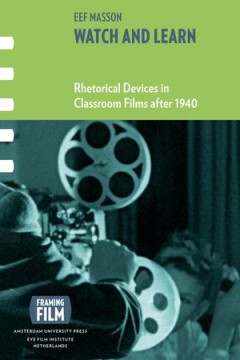
Watch and Learn
Since the late 1990s, there has been a marked increase in academic interest in what are sometimes called 'utility films', intended for purposes of information, training, teaching or advertising. Although such research was long overdue, the current academic output tends to be restricted in scope, paying little attention to the films' textual features: the means they deploy in defending their inf…
- Edition
- -
- ISBN/ISSN
- 9789089643124
- Collation
- -
- Series Title
- -
- Call Number
- 790.2 MAS w

On Inequality (Big Ideas)
Does Europe have an inequality problem? Amid the COVID-19 pandemic, many Europeans are certainly struggling. The rise of populist movements is another signal that something is awry. Many Europeans no longer see their economy as fair. But is this a problem of too much inequality, or just a problem of ideology? Is inequality even a bad thing? We need to consider the statistics on economic inequal…
- Edition
- -
- ISBN/ISSN
- 9789286149351
- Collation
- -
- Series Title
- -
- Call Number
- 650
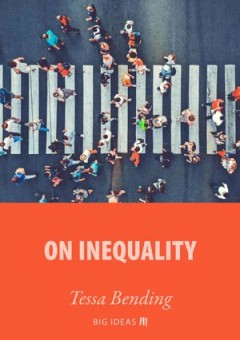
On Inequality (Big Ideas)
Does Europe have an inequality problem? Amid the COVID-19 pandemic, many Europeans are certainly struggling. The rise of populist movements is another signal that something is awry. Many Europeans no longer see their economy as fair. But is this a problem of too much inequality, or just a problem of ideology? Is inequality even a bad thing? We need to consider the statistics on economic inequal…
- Edition
- -
- ISBN/ISSN
- -
- Collation
- -
- Series Title
- -
- Call Number
- 650

Measuring impacts – The experience of the EIB-GDN programme
Measuring, understanding and communicating the EIB’s development impact is a key strategic priority for the European Investment Bank (EIB). In partnership with the Global Development Network the EIB started the Programme in Applied Development Finance in 2017, to deepen understanding of results and impact of operations under the Impact Financing Envelope (IFE) for Africa Caribbean and the Pac…
- Edition
- -
- ISBN/ISSN
- -
- Collation
- -
- Series Title
- -
- Call Number
- 650
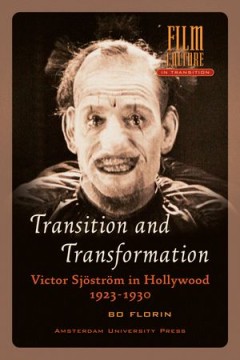
Transition and Transformation
In 1923, Victor Sjöström (1879-1960) got an offer from Goldwyn Pictures to come to Hollywood. This was nothing unusual for a successful European director: - Metro's bring - ing them in by car load - , as Photoplay stated in 1926. At the time, Sjöström was Sweden's most renowned director, who had become world famous for his austere and naturalistic film style. Sjöström stayed in Hollywood …
- Edition
- -
- ISBN/ISSN
- 9789089645043
- Collation
- -
- Series Title
- -
- Call Number
- 791.43 FLO t
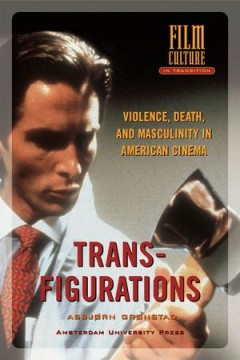
Transfigurations: Violence, Death and Masculinity in American Cinema
In many senses, viewers have cut their teeth on the violence in American cinema: from Anthony Perkins slashing Janet Leigh in the most infamous of shower scenes; to the 1970s masterpieces of Martin Scorsese, Sam Peckinpah and Francis Ford Coppola; to our present-day undertakings in imagining global annihilations through terrorism, war, and alien grudges. Transfigurations brings our cultural obs…
- Edition
- -
- ISBN/ISSN
- 9789089640109
- Collation
- -
- Series Title
- -
- Call Number
- 791.43 GRO t
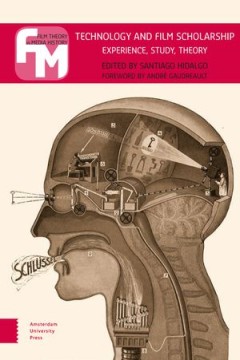
Technology and Film Scholarship: Experience, Study, Theory
This volume brings together a wide range of explorations of the ways in which technological innovations have established new and changing conditions for the experience and study of film. The book offers analyses by such leading figures in film studies as Tom Gunning and Charles Musser, who examine the ways in which technological changes have altered the ways how cinema is conceived and how it i…
- Edition
- -
- ISBN/ISSN
- 9789048525270
- Collation
- -
- Series Title
- -
- Call Number
- 791.43 HID t
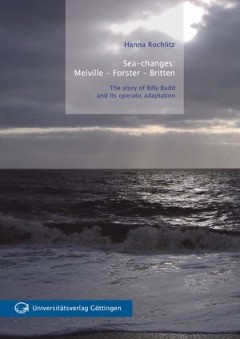
Sea-changes - Melville - Forster - Britten
E. M. Forster first encountered Billy Budd in 1926. Some twenty years later, he embarked on a collaboration with Benjamin Britten and Eric Crozier, adapting Melville’s novella for the opera stage. The libretto they produced poignantly reaffirms the Forsterian creed of salvation through personal relationships. This study presents an extensive exploration of Forster’s involvement in the inter…
- Edition
- -
- ISBN/ISSN
- 9783863950453
- Collation
- -
- Series Title
- -
- Call Number
- 780

Musik - Politik - Identität Band 3
Music always mirrors and acts as a focal point for social paradigms and discourses surrounding political and national identity. The essays in this volume combine contributions on historical and present-day questions about the relationship between politics and musical creativity. The first part concentrates on musical identity and political reality, discussing ideological values in musical disco…
- Edition
- -
- ISBN/ISSN
- 9783863952587
- Collation
- -
- Series Title
- -
- Call Number
- 780

Techné/Technology: Researching Cinema and Media Technologies - Their Develop…
This fourth title in the series The Key Debates sets out where the term techne comes from, how it unleashed a revolution in thought and how the concept in the midst of the current digital revolution, once again, is influencing the study of film. In addition, the authors - among them André Gaudreault, Geoffrey Wintrop-Young, Martin Lefevbre, Dominique Chateau, Nanna Verhoeff, Andreas Fickers an…
- Edition
- -
- ISBN/ISSN
- 9789089645715
- Collation
- -
- Series Title
- -
- Call Number
- 791.43 OEV t
 Computer Science, Information & General Works
Computer Science, Information & General Works  Philosophy & Psychology
Philosophy & Psychology  Religion
Religion  Social Sciences
Social Sciences  Language
Language  Pure Science
Pure Science  Applied Sciences
Applied Sciences  Art & Recreation
Art & Recreation  Literature
Literature  History & Geography
History & Geography